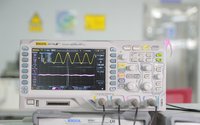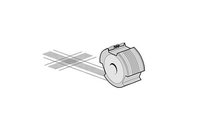Effect of Temperature on Electronic Components in Material Failure Analysis
Date:2023-07-18 15:36:00 Views:2345
The temperature range of electronic components is important, as exceeding this range can lead to performance degradation, failure, or damage. Usually, the temperature range for civilian grade use is 0-70 ℃, industrial grade use is -40-85 ℃, and military grade use is -55-128 ℃. Temperature changes have a significant impact on the conductivity, limiting voltage, and current of semiconductors. Modern chips typically contain millions or even tens of millions of transistors and other components, and the accumulation of each small deviation may have a significant impact on the external characteristics of semiconductors. If the temperature is too low, the chip may not be able to open the internal semiconductor switch at the rated working voltage, resulting in abnormal operation.
The impact of temperature changes on electronic components
1. Semiconductor devices are most sensitive to temperature. Under high temperature conditions, the H F E of the transistor increases with the increase of temperature, resulting in drift of the working point, unstable gain, unstable performance of electronic instruments, and drift failure;
2. Due to the increase in temperature, the reverse current of transistors I c b o and I c e o increases, which in turn increases the I c current. The increase in Ic also leads to an increase in the current of the crystal Icbo, Iceo, and Ic, forming a vicious cycle until the transistor burns out, causing serious failure of the instrument;
3. Transistors operate at low temperatures, and hF E will decrease as the temperature decreases. Under low temperature -55 ℃ conditions, the average gain of a general transistor decreases by about 40%, with some devices losing amplification ability and others causing fatal failure;
4. The impact of excessive temperature on capacitors is mainly to reduce their service life. When the ambient temperature exceeds the allowable working temperature of the capacitor, the working point of the hardness capacitor will decrease by half for every 10 ℃ increase in temperature.
_20230718153323_114.png)
Failure analysis and detection of various materials:
1. Failure Analysis of Electronic Components
The rapid development of electronic component technology and the improvement of reliability have laid the foundation of modern electronic equipment, and the fundamental task of component reliability work is to improve the reliability of components.
2. Failure Analysis of Polymer Materials
The overall development trend of polymer material technology is high-performance, high-functionality, composite, intelligent, and green. Due to the new requirements of technology and the high demands of products, it is necessary to find the root cause and mechanism of failure through failure analysis methods to improve product quality, process improvement, and liability arbitration.
3. Failure Analysis of PCB/PCBA
PCB, as the carrier of various components and the hub of circuit signal transmission, has become the most important and critical part of electronic information products. Its quality and reliability level determine the quality and reliability of the entire equipment.
4. Failure Analysis of Metal Materials
With the progress of society and the development of technology, metal products are increasingly widely used in various fields such as industry, agriculture, technology, and people's lives. Therefore, the quality of metal materials should be more worthy of attention.
The above is the material failure analysis related content organized by the Chuangxin Testing editor, hoping to be helpful to you. Chuangxin Testing is a professional testing institution for electronic components. Currently, it mainly provides integrated circuit testing services such as capacitors, resistors, connectors, MCU, CPLD, FPGA, DSP, etc. Specializing in functional testing of electronic components, appearance testing of incoming electronic components, anatomical testing of electronic components, acetone testing, X-ray scanning testing of electronic components, and ROHS composition analysis testing. Welcome to call, we will be happy to serve you!




 Weixin Service
Weixin Service

 DouYin
DouYin
 KuaiShou
KuaiShou





















